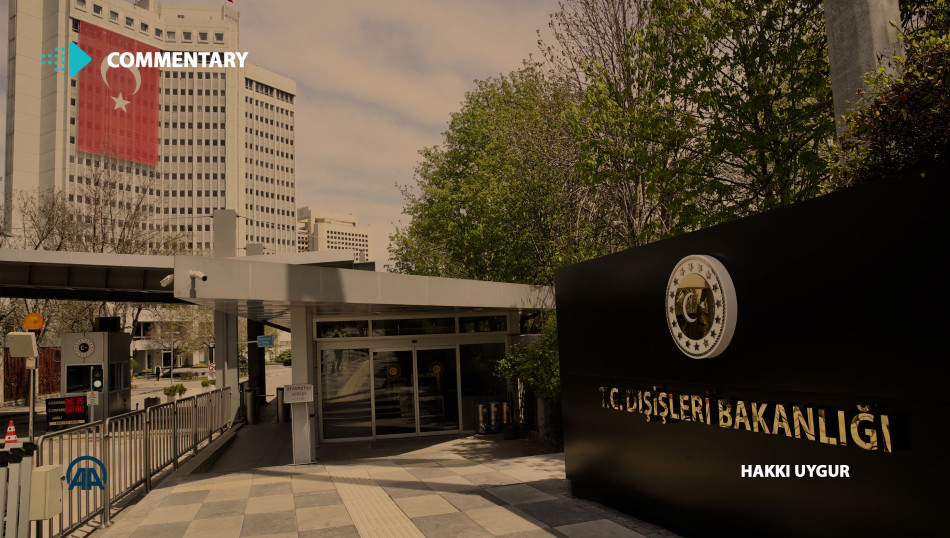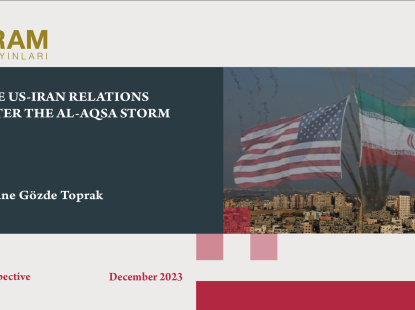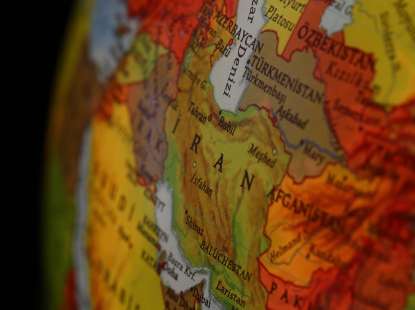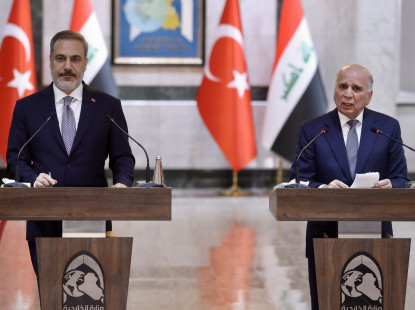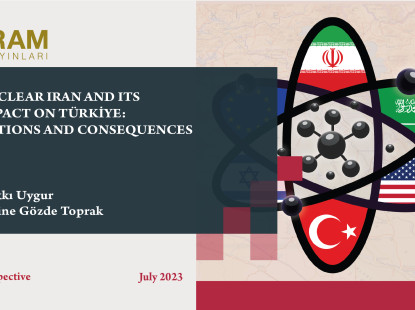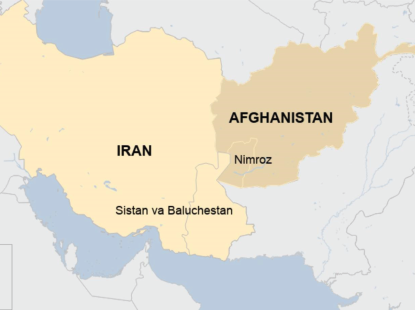Reflection of Global and Regional Competition on Turkish Foreign Policy Analysis
Nowadays, global and regional media outlets and research centers with divergent political lines are publishing various analyses on the dynamics of Turkish foreign policy. Ignoring the turbulence created by geopolitical uncertainties, the majority of these analyses prefer a leader analysis-based interpretation. Regarding Turkey specifically, supposedly President Recep Tayyip Erdogan follows an irrational, aggressive, and expansionist policy arising from his worldview and perception of history. Moreover, as recently reverberated by French President Emmanuel Macron, concepts such as Islamism, Neo-Ottomanism, caliphate, sultanate, and authoritarianism are recurrently observed in similar analyses. On the other hand, it is no secret that leaders’ worldviews and ideologies play a vital role in domestic and foreign policymaking. In this context, the AK Party and its leaders, which have been ruling since 2002, are known for ambitious statements and aims regarding Turkey's historical mission. However, even if the current policies are assessed only based on the history of the Republic of Turkey it will be evident that the foreign policy pursued by Ankara, even its efforts to judiciously evaluate uncertainty and crises, actually exhibits a serious continuity.
Throughout the country’s history, it has sought to implement a strong foreign policy, even under difficult conditions. The borders determined by the Treaty of Lausanne, which was accepted under the influence of the great defeat arising from the exceptional conditions of World War I, were never recognized as the ultimate border of its influence zone even for the founding cadres of the Republic. Although it was impossible to realize the historical rights over Mosul and Kirkuk, as in the case of Hatay rejoining the motherland in 1939, Turkey benefıted from the withdrawal of the “colonizer”, France, from the region, and, subsequently, through diplomatic methods, could reclaim Hatay province, which since the Seljuk period has been Turkish land, to Anatolia. Also, the 1974 coup of the Greek military junta in Cyprus enabled Ankara to conduct a comprehensive peace operation on the island, designated both historically and culturally as an extension of Anatolia, and, as a result, precipitated a climate of peace and a tranquil atmosphere in Cyprus that lasted for about 50 years. Ankara's Cyprus strategy went unchanged despite Turkey being subjected to different sanctions after this last Cold War operation. Moreover, Turkey’s coalition government motto of “Turkish world from the Adriatic to the Great Wall of China” in the country’s relatively weakest 90s period was an indicator of Ankara’s continuous political consciousness.
Currently, however, it is understood that the final victory declared upon the collapse of the Soviet Union in 1991 by the US-led Western Bloc was in fact a recess bell. Furthermore, China, which was not considered a viable threat to the global capitalist system, has surpassed the US in many critical and strategic areas as a result of its enormous growth over the last 40 years. This has sounded the alarm in Washington. The US, on the other hand, is aware that if it fails to take prompt, effective measures, the frequently emphasized “peaceful rise” of China will become a dramatic upswing that may cost the US its global leadership. This situation manifests itself in areas where advanced technology is most prominent, such as artificial intelligence and 5G. At this point, the US is leaning toward extreme deterrence measures, even occasionally threatening its traditional allies, such as the UK and Israel, to deter them from China-based technology companies. Yet, the anti-China policy of the US is not limited to technology and traditional partners; furthermore, its recent hunt for new alliances is quite remarkable. It is pursuing new coalitions, particularly in South and East Asia, by trying to bring countries such as Japan, Australia, South Korea, and India together to oppose China. While Beijing is also developing strategic relations with African countries and important Islamic countries such as Pakistan. Moreover, China continues to progress within the scope of the “One Belt-One Road Project” and works to preserve its strategic relations with many countries.
The tension between the US and China, which has been intensifying in Asia with unascertained severity but is certain to continue in the coming years, also closely interests regional powers. While some countries are already a direct party to the tension, others try to maintain a neutral stance as much as possible. For instance, in Southeast Asia, Indonesia stands out with its non-partisan position and strategic location, while in West Asia, Turkey attracts attention with a greater sphere of influence built upon its historical and strategic depth as well as a record of friendly relations with the US, though the two states experienced various predicaments following the 15th July coup attempt. However, Iran, another important regional power, enervated due to comprehensive sanctions resulting from its excessive regional sprawl since the beginning of the Syrian Crisis, is seeking a long-term strategic agreement with China to avoid collapse.
Considering this overall picture, the bulk of the analyses on Turkey and its leadership are seemingly drafted to influence peoples and leaders of the region rather than being an analysis in its objective meaning. The ultimate goal of this posture is an effort to exploit regional uncertainty to open space for Israel and the countries which have close relations with it such as the UAE -as seen in the latest “Israel-UAE normalization agreement”- and some non-state armed proxy/actors. Israel’s occupation and expansionism, a principal source of regional instability, attempts to be legitimized in regional public opinion through a rhetoric of overstated Turkish and, sometimes, Iranian threat under a mentality of “a drowning man will catch at a straw.” Although it is ‘normal’ for the UAE -which has a mere 50 years of state experience- to take such steps, well-established Arab states need to adopt approaches prioritizing the long-term and regional cooperation for the peace and prosperity of the region. Furthermore, in a period when fossil energy resources are beginning to lose their importance, overpopulation and scarce water resources threaten food security, and epidemics deeply shake economies, the few countries of the region that are able to stand on their own feet have no choice but to engage in comprehensive cooperation in world affairs. If the opportunity that was missed 10 years ago cannot be seized, and regional forces such as Egypt, Turkey, and Iran don’t focus on long-term objectives by leaving their negligible disagreements aside, a great area of the region will mimic an enormous Lebanon struggling with hunger, poverty, and mismanagement.
This article is first published in 9.9.2020 at TRT Farsi.
